Lowell freshmen face stigma due to lottery admissions
Since 1966, Lowell students have been admitted based on their GPA and standardized test scores. But not this year. The Class of 2025 is the first grade in over 50 years to be admitted to Lowell through a lottery-based system.

As a result, many members of the Lowell community have made assumptions about the freshmen’s academic ability. While some have correlated an underperformance in academics with the change in the admissions system, others have attributed it to the COVID-19 pandemic, and the time spent in distance learning. Now, freshmen confront these stereotypes and share their experiences with how this stigma is affecting them. Although few students face these demeaning comments or notice it, the surrounding stigma has impacted a minority of the freshmen class.
For decades, Lowell’s merit-based admissions system has been a unique factor that many community members used to separate Lowell from other San Francisco Unified School District (SFUSD) public high schools. The merit-based admissions assessed students based on their middle school grades, essay responses, and seventh grade test scores. In February 2021, five out of seven members of the SFUSD Board of Education voted to change Lowell’s merit-based admissions process to a lottery system. With the new lottery system, all prior forms of assessment were eliminated. Initially, this change in policy was a temporary solution to the challenges of assessing students on their academic merit during distance learning. However, as the issue of Lowell’s lack of diversity resurfaced, the SFUSD Board of Education passed Resolution No. 212-2A1 in February 2021, which implemented the lottery admissions process for the 2021-2022 school year and maintained it in December 2021 for at least the 2022-2023 school year. The Board members in favor of the lottery admissions process contended that the merit-based admissions was elitist, as it was shown to disadvantage Black and Latinx students, and thus saw the lottery system to be a viable solution.

The lottery system has succeeded in bringing more ethnic diversity to Lowell. With the lottery in effect for the 2021-2022 school year, the number of Latinx students increased from 13 to 21 percent while the number of Black students increased from 2 to 4 percent. On this score, Math teacher Tyler Centers believes that the lottery system is an improvement. “The lottery system brings with it new opportunities for Lowell to expand on the diversity of backgrounds, ideas, and goals that are necessary for creating an equitable and supportive school community,” he said.
Since there is no longer a merit requirement, some people within the Lowell community, including students, teachers, and parents, began to devalue the freshman class and Lowell’s prestigious image. Some even refer to them as “lottery kids.” According to freshmen Mira Kaminker and Ilya Shuster, among others, this pejorative term for Lowell’s Class of 2025 implies they are less intelligent, less motivated, and undeserving of their place at Lowell. In addition, some see this freshman class as bringing down the academic standard at Lowell.
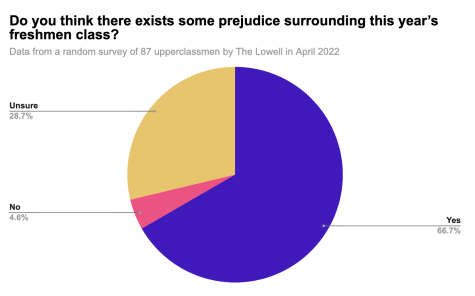
These assumptions have been fueled by data released by Principal Joe Dominguez showing that 23 percent of the freshmen class had at least one D or F in the 2021 fall semester, in comparison to 10 percent of sophomores, 10 percent of juniors, and 7 percent of seniors. Additionally, in a survey by The Lowell administered to teachers, 77 percent believe the freshmen class is performing worse academically compared to previous years. And in another anonymous survey conducted by The Lowell on April 15 with seven randomly selected registries given to Lowell’s sophomores, juniors, and seniors, 49 percent of participants said or heard that the Class of 2025 was “troublesome,” “less Lowell like,” “not as hardworking,” “dumb,” and “don’t deserve their acceptance.” An anonymous freshman shared that “a teacher told the whole class we all had F’s because we were lottery.”
According to an anonymous survey done by The Lowell, 69 percent of upperclassmen have heard remarks about freshmen in reaction to the lottery system at Lowell occasionally or often.
Making assumptions on Lowellites on how they were admitted is not a new phenomenon. Prior to the change in admissions, students were admitted through the band system. Bands created benchmarks to assess grades, test scores, extracurriculars, and other extenuating circumstances of the prospective students. In Lowell’s previous admissions policy, band three allowed for students from underrepresented public and private schools an opportunity to attend Lowell through being nominated by their principal and meeting the minimum point criteria. Depending on specific circumstances regarding hardship or low-income backgrounds, students could be admitted to Lowell without high test scores and grades. As a result, many students would make assumptions about others’ lack of intellect or work ethic, labeling them as students who got into Lowell through band three, according to junior Aubrey Chikere. Chikere understands the frustration of current freshman students being called “lottery kids,” as she was referred to as a “band three kid” in her freshman year. This caused Chikere to question her worth and place at Lowell. “It’s like we didn’t deserve to be here — that I wasn’t deserving,” Chikere said. “I wasn’t smart enough because I got in by band three.”

To many freshmen, repeatedly being called or hearing the phrase “lottery kid” is frustrating and demeaning. Freshman Stephanie Kuang says that when her class didn’t perform well academically, freshmen students would jokingly justify their performance by saying that the lottery system was to blame. “I feel like we’re portrayed as a dumb batch of Lowell kids,” Lily, a freshman using a pseudonym, said. “We’re just kind of looked down upon for that.”
The stigma surrounding the Class of 2025 has caused some freshmen to have difficult experiences at Lowell. Lily believes that assumptions made about the freshmen class have negatively affected her efforts in school, and even led her to quit extracurricular activities out of fear of judgment. “Recently, I realized the stigma makes me subconsciously more self aware, and pressures me to watch my actions to not appear to be ‘dumb’ and seem like a stereotypical 2025 Lowell freshman,” she said. Kaminker often hears comments targeting freshmen, making them feel isolated. “It does affect my enjoyment at school because it creates more of a divide between the freshman and the other classes,” Kaminker said.
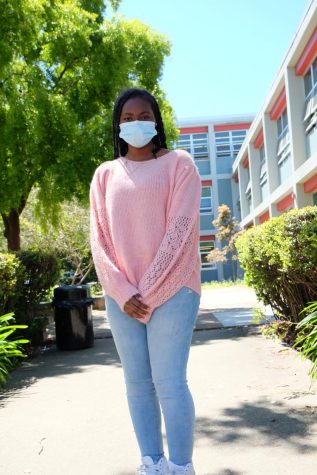
The “lottery kids” stigma disproportionately affects Black, Indigenous, and other students of color. Freshman Neena Chapman believes that it can be partially attributed to the increase in ethnic and racial diversity in the freshman class compared to other classes. “There has been a big change in the school when it comes to the diversity in the school and some people aren’t so good with change,” Chapman said. Chikere said that she has witnessed freshman students addressing their Black classmates as “Lotts,” which frustrates her as it divides students by grade. “Personally, that makes me feel very confused and angry, because you guys are peers and you’re supposed to be one grade, one class. It shouldn’t be a division based on race,” Chikere said.
Although some freshmen have been called names as a result of the change in admission policy, a majority of them have not. In a survey given exclusively to Class of 2025 registries, 68 percent of respondents said they have not experienced negative comments from upperclassmen or teachers about being admitted through the lottery system. Shuster says that teachers have been supportive and accommodating of the freshmen class in their transition from online to in-person learning.
While teachers acknowledge freshmen are performing at a lower level than previous years, they think the challenges of distance learning during their 8th grade year, account for much of the lowering of grades. Centers believes that poor academic performance is due to shortened class time during quarantine. “During distance learning, teachers had to be selective about what to teach and students didn’t always learn every topic,” Centers said. English Teacher Samuel Williams believes that with every freshmen class, there will be some that struggle, but this year may be unique in that everyone returned to in-person learning. “This year some seem to be having an even harder time, but it’s hard to tell how much of this is a result of the admissions policy and how much is the pandemic,” Williams said.
I feel like we’re portrayed as a dumb batch of Lowell kids. We’re just kind of looked down upon for that.
— Lily
Similar to the perspective of teachers, some freshmen also believe that distance learning negatively affected their academic performance. “I think there was a little bit of a learning curve coming off of quarantine learning,” Kuang said. “So initially, I felt upset at my middle school because I didn’t feel prepared.” An anonymous freshman agreed in a survey response. “The only reason I think we could fall behind is due to the adjustment into in person learning,” they said.
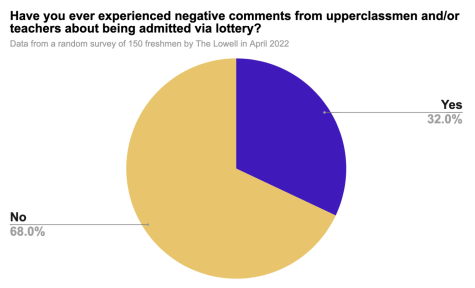
Some freshmen disagree with the assumptions made by other students. “In reality, [freshmen] actually do deserve to be here,” Lily said. “Most of the freshmen that I have seen are studious, but their efforts are not enough to evade the stereotype that we shouldn’t be here.” Chapman, who has heard people use the term “lottery kids,” finds it rude and insulting towards her and her classmates. “The students actually worked hard to get into the school,” Chapman said. World History teacher Lauretta Komlos has noticed that her freshmen students were excited to be at Lowell. “They were thrilled, and they were ready,” she said. “They were ready to work super hard and get on that ship and coast to accomplishment.”
A number of Lowell community members see this stigma as harmful and something that needs to come to a halt. Chikere believes that the first step is to stop the use of the term “lottery kids” when referring to the Class of 2025. Centers also believes that the freshmen class should not be labeled by how they were admitted. “Even if you disagree with lottery admissions, these students had no say in the matter and deserve the same respect and kindness we show every class,” he said. “We need to be clear that every student at Lowell has the potential to succeed and that how a student was admitted doesn’t define their ability.”
We need to be clear that every student at Lowell has the potential to succeed and that how a student was admitted doesn’t define their ability.
— Tyler Centers
According to Chikere, the freshman students missed out on most of their middle school years but still have the potential to rise above the assumptions. “I feel like a lot of people look down on them and think that they’re not going to ever be as good as the upperclassmen,” Chikere said. “But they have the potential.”


Kelcie is a senior at Lowell who can be found in the journ room working, drinking coffee, and listening to music. Her older brother once mentioned that there are only three guarantees in life: death, taxes, and Kelcie not waking up to her alarms. She also happens to have a paradoxical relationship with chicken… go figure.

Laura is currently a senior. In her free time, she enjoys singing along to karaoke, running, travelling, and trying new food spots across the Bay Area! Her current favorite Netflix show is Ozark.

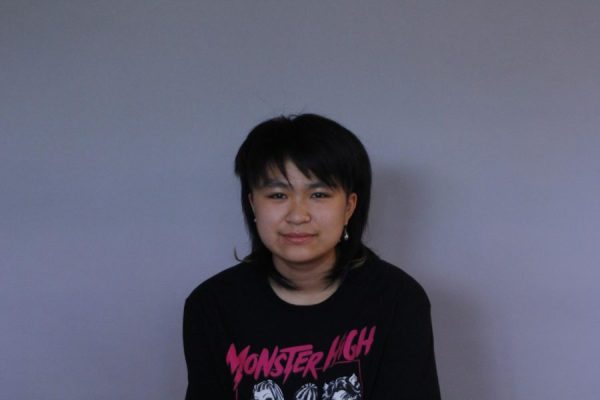
Charon is an illustrator in their senior year. They are non-binary and use they/them pronouns. Usually just a homebody with a love of the post-apocalypse and wild west genres. As well as an eye for collecting charms, pins, patches, and other knick-knacks. Currently hemiplegic and recovering from a stroke.

Reina's favorite colors are periwinkle and pastel purple. She is a master playlist curator and absolutely cannot go a day without taking a nap! Besides that, her favorite drink is honey black tea and is a strong believer that tea > coffee.

Saw is a senior who has been on staff since Spring 2021. Outside of her busy academic life, Saw likes to volunteer at events, explore the city with friends, watch the latest MARVEL movie, and run on Lowell's Cross Country team.




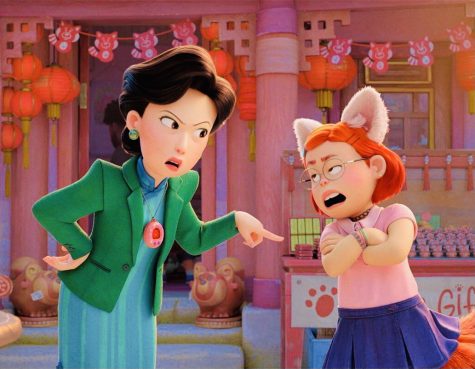

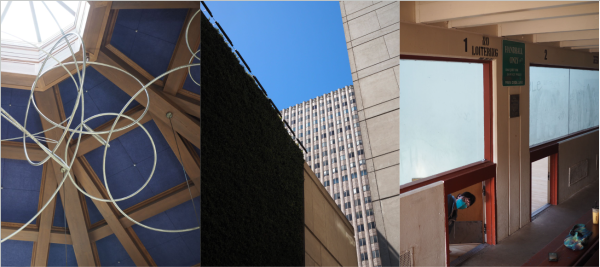
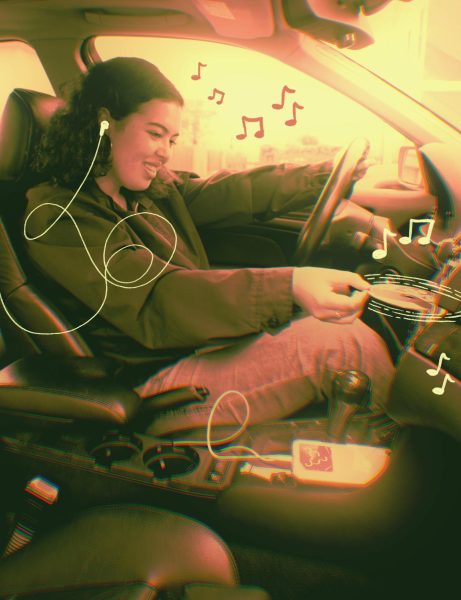
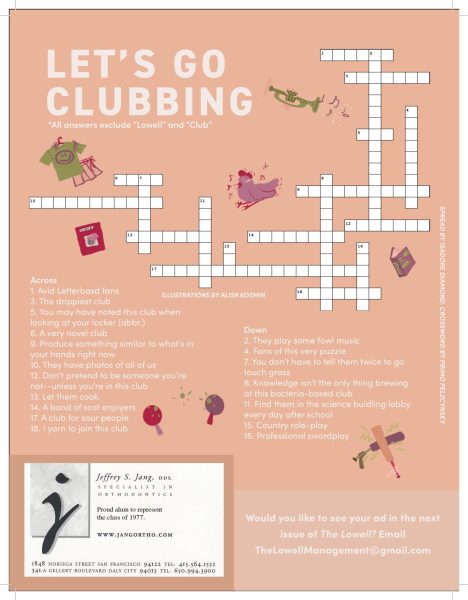
Tammy Webster • Dec 20, 2022 at 2:47 am
My greatest advise is do not follow the tips all the lottery winner tell you they use because it a big lie, the secret is spiritual lottery spell. I was introduced to this spiritual priest called Priest Odibo and i was told he can help win the lottery I never believe it cause the distance where he resides is very far. He is from Africa and i see no reason to believe that this really but my friend out of alot of debt i still have to do it so as to pay back and sort out bills. I contacted him and he assure me just three days i bought a ticket from a shop and played after he has cast a spell and send me numbers to play with. I was in my house when i was watching the result and my name was among winners, i have been doing this for years and i never won but Priest Odibo prove it to me that spell really works. I won $316.3 Million but the problem i have was that you can only use the spell once if not i would have order another spell to play for millions. This is the secret to success do not be deceive by online tips. Email him today through templeofpermanenthealings@ gmail. com or whatsapp at +2348163083041
Lavinia Frank • Sep 12, 2022 at 8:35 am
No child should feel unwelcome, let alone targeted and labeled as “less than” by a community, not at Lowell or any school. No matter the circumstances of how they arrived there. Such a reaction—from teachers??? From other students??? That worries me for Lowell’s future than anything else in this article.
Vince • May 29, 2022 at 6:55 pm
If distance-learning is to blame for 23% of freshmen earning at least one D or F during the 2021 fall semester, then how does one explain why the students in other classes didn’t have the same percentage of students with a D or F? Lowell sophomores didn’t have the opportunity to even set foot on Lowell campus during the pandemic, yet they still didn’t get as many Ds and Fs.
And, it seems to me that freshmen of ANY race shouldn’t be referring to students of other races as “Lotts” – they’re ALL Lotts.
And, I disagree with the statement that “the students worked hard to get into the school” – by definition, the lottery ignored the applicants’ grades, so they didn’t have to work hard to get into Lowell under the lottery.